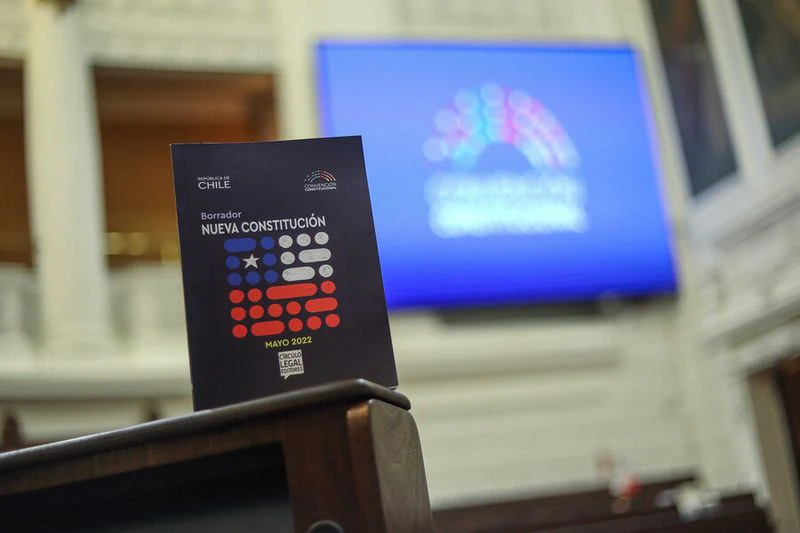The liberal English publication The Economist published an article on Wednesday in which they give their opinion on the proposed new Constitution and their verdict is categorical: it calls for rejecting it at the polls.
The article is titled “Voters should reject Chile’s new constitutional draft”, calling it a “major mistake” and a “fiscally irresponsible disaster”, as well as placing it as part of the “woke” trend.
To begin with, according to the text of the English publication, the document “is absurdly long, with 388 articles. It is also fiscally irresponsible and excessively progressive.”
“To be fair, it omits some of the worst ideas aired in the left-dominated caucus. Among them, the nationalization of all natural resources (mining generates 12% of GDP) and the suppression of the Upper House. The central bank maintains its independence, although its powers have been expanded to include “employment protection, care for the environment and natural heritage,” the magazine points out. He even adds that “some ideas are laudable. The document would demand the devolution of some competences to the regions, and would give indigenous people the right to be taught in their own languages in schools”.
However, he adds that “overall, the draft is a muddled mess, filled with imprecise language that warrants more or less decades of wrangling over what it really means. ‘Nature’ would have rights. The project mentions “gender” 39 times. Judicial sentences, the police and the national health system will have to function with a “gender perspective”, which does not define it”.
It also warns that “The document is much less favorable to business or growth than the current Constitution. It gives unions the exclusive right to represent workers, guarantees them participation in company decision-making, and allows them to strike for any reason, not just work-related. It says that everyone has the “right to work” and that “all forms of job insecurity are prohibited.” This could make it difficult to fire. Landowners, such as farmers, could lose property rights to water on their land. Compensation for the expropriated land would not be at market price, but at what Congress considers “fair.”
More about Constitutional Convention
Regarding rights, The Economist postulates that “the project creates a portfolio of socioeconomic rights that could trigger the budget. It calls for the creation of several new agencies, such as a national health service and a cradle-to-grave care system, without much thought about how they would be financed. The State would supervise the provision of housing, to which it says that every person has a right. Real estate speculation would be prohibited. Also for-profit education.
Another thing that worries the magazine is the political system that includes the proposal. “The government’s legal checks and balances would be diluted. A new council would have power over all judicial appointments; previously the Supreme Court, the president, the court of appeals and the Senate had a role. The bill modifies the budget process by giving Congress new powers to propose spending bills.”

It also refers to the extension and the variety of themes included. He highlights, for example, that “the State must” promote the culinary and gastronomic heritage “of Chile and recognize” spirituality as an essential element of the human being “.
Thus, the English publication says that “the old Chilean constitution was not perfect. In fact, it has been modified almost 60 times. But compared to the one it is proposed to replace, it is a model of clarity. And what is more important, the old government project works. Since democracy was restored, Chile has been a Latin American success story. GDP per person has tripled since 1990 and poverty has decreased.
“Instead of scrapping the old constitution, Chileans should scrap the new one. When the project is put to a referendum in September, they should reject it. The current constitution would remain, with Congress retaining the power to gradually revise it, for example to facilitate the building of a strong welfare state. This approach may sound uninspiring to those who took to the streets in 2019 and 2020. But in the long run it is much more likely to make Chile prosperous and governable”, he concludes.

